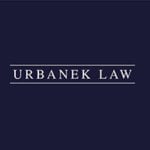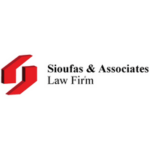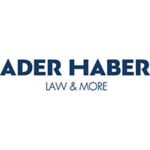-
Overview
Under Korean law, real property consists of land and buildings, which are regarded as separate real estate and for which separate title registries are maintained. Title registration is generally required to perfect real estate title transfers, and registration of title is generally considered prima facie evidence of valid title (hence title insurance is available but not widely used). Priority among interests in real estate, including security interests, is generally determined by the order of registration in the title registry.
Ownership of real estate is grounded in the principle of absolute ownership, granting the owner full and unrestricted rights over the property – similar to the concept of fee simple absolute under common law. These rights include exclusive possession, utilization and the ability to encumber or dispose of the property at the owner’s discretion.
-
What is the main legislation relating to real estate ownership?
The main sources of real estate law are as follows:
- • the Civil Code;
- the Real Estate Registration Act;
- the National Land Planning and Utilization Act (“NLPUA”);
- the Report of Real Estate Transaction Act;
- the Building Act;
- the Housing Lease Protection Act;
- the Commercial Building Lease Protection Act (“CBLPA”); and
- the National Land Planning and Utilization Act.
-
Have any significant new laws which materially impact real estate investors and lenders come into force in the past year or are there any major anticipated new laws which are expected to materially impact them in the near future?
Amendments to the Real Estate Investment Company Act (“REICA”): Introduction of Project Real Estate Investment Trusts (“Project REITs”) (scheduled to take effect on November 28, 2025)
While PFVs have traditionally been used as single-purpose development vehicles designed to carry out a specific real estate development project, with limited-term investment horizons and capital structures that rely heavily on project financing with a return model that typically contemplates exit upon stabilization—whether by asset sale or refinancing—and subsequent liquidation of the vehicle, Project REITs, by contrast, were introduced to enable long-term ownership and operation of developed assets within a regulated real estate investment framework, encouraging more stable capitalization, reduced reliance on high leverage, and alignment of interests through ongoing professional asset management rather than short-term development-driven exit.
The following describe the key features of Project REITs:
- Project REITs will be permitted to engage in business activities such as in-kind contributions, real estate development projects, borrowings and bond issuance, and third-party issuance of new shares based solely on filing an establishment notification, without the need for a business license or registration. Upon completion of the development project and transition to the operational phase, the REIT must obtain a business license or complete business registration;
- The period for conducting a mandatory public offering of at least 30% of the total issued shares of a Project REIT is extended to five years from the date of obtaining a business license or completing business registration following completion of the development project (as opposed to three years for ordinary REITs); and
- Prior to completion of the development project, a Project REIT is required to submit only a business investment report, and all other general disclosure or reporting obligations under the REICA are exempted during the development period.
The key advantages of Project REITs as compared to other investment vehicles are as follows:
- Legal stability: PFVs are established under temporary tax legislation and require annual extensions for their continued availability, whereas Project REITs are governed under the REICA without any statutory sunset period, thereby providing greater regulatory certainty and stability;
- Investor-led development: As corporate entities, material decisions of a Project REIT are made through shareholders’ meetings and board of directors’ resolutions. By contrast, a real estate fund (REF) established under the Financial Investment Services and Capital Markets Act (“FISCMA”) is exclusively managed by the asset management company, and accordingly, major decision-making authority rests with the asset management company;
- Leverage: Funds established under the FSCMA are generally limited to borrowings of up to 400% of net asset value, whereas Project REITs may utilize leverage of up to 1,000% of net assets, subject to approval by a special resolution of the general meeting of shareholders.
Amendments to the Building Act: Strengthening Use Approval Requirements for Living-Type Accommodation Facilities (scheduled to take effect on February 27, 2026)
Living-type accommodation facilities (“Saenghwal-sukbak Siseol” in Korean) are legally classified as accommodation and not as residential housing. However, in practice, many developers have marketed and sold these units as if they could be used for residential purposes, even though they do not satisfy the facility and equipment requirements needed to register as an accommodation business. This has caused widespread misuse, disputes with buyers, and regulatory enforcement issues.
To address this, the Building Act has been amended to ensure that living-type accommodation facilities are developed and sold only for their intended accommodation purpose:
- Use approval will be granted only if the sales contract confirms compliance with the statutory facility and equipment standards required for accommodation business registration; and
- When issuing a building permit, the permitting authority must inform the developer in advance of the conditions that must be met in order to obtain the subsequent use approval.
- In effect, the amendment ensures that developers cannot sell these units as de facto residences and later avoid compliance with accommodation business requirements. It enhances regulatory transparency and helps prevent buyers from being misled regarding the allowable use of the property.
How is ownership of real estate proved and are ownership records available for public inspection?
Generally, under the Civil Code, changes to real property rights (including ownership) must be registered to take effect. A person who has entered into a contract to transfer real estate ownership must apply for the registration of the transfer within 60 days from the date the transaction is completed. Although real estate registers are not considered authoritative (meaning that reliance on the register does not provide legal protection if the true owner later appears), it is generally considered prima facie evidence that the registered individual holds legal title.
Korean courts operate the Internet Real Estate Registry, which allows for the electronic issuance and viewing of real estate registration records.
-
How is ownership of real estate proved and are ownership records available for public inspection?
There are certain restrictions on foreign ownership or occupation of real estate in Korea; the Act on Report on Real Estate Transactions, Foreign Investment Promotion Act (“FIPA”), and Foreign Exchange Transaction Act (“FETA”) are the main sources of law regarding foreign ownership of real estate.
Under the Act on Report on Real Estate Transactions, certain types of acquisition of real estate by a foreign person (foreign individual, foreign corporation, or corporation with more than 50% foreign ownership) must be reported to governmental authorities within 60 days from the contract execution date. If the real estate is located in any of the following, such person must also obtain permission from the authorities to acquire the property.
- A military base or military facility protection area;
- A designated cultural property and its protective facilities or protection zones;
- An ecological and scenery conservation area; or
- Special district for protection of wildlife.
Under the FETA, if a non-resident acquires domestic real estate or rights related to real estate (property rights, leasehold rights, etc.), the person must submit a report to the head of a foreign exchange bank, with documents to prove the transaction of real estate or the acquisition of rights.
Under the FIPA, if a foreign person seeks to acquire real estate indirectly by establishing a corporation in Korea, such person must notify the relevant authority by submitting a prescribed report form.
-
Are there any restrictions on who can own real estate, including ownership by any foreign entities?
Ownership rights, superficies (jeesang-kwon), easements (jeeyeok-kwon), deposit-based lease rights recorded in the real estate registry (jeonse-kwon), mortgages, and leasehold rights are proprietary rights that can be created in real estate.
-
What types of proprietary interests in real estate can be created?
Ownership of land and buildings is separate. If a building is owned by a party that is not the owner of the land on which the building is situated, the owner of the building must hold leasehold rights or other legal grounds to own the building.
-
Is ownership of real estate and the buildings on it separate?
Under the Condominium Act, the land on which a condominium building stands is co-owned by the individual unit owners. Each owner holds a land-use right that is inseparably linked to their exclusive unit. Because this land-use right is legally treated as a component of the unit itself, it cannot be transferred, mortgaged, or otherwise dealt with independently of that unit. Consistent with this principle, the Real Estate Registration Act prohibits any separate registration (such as a change in ownership or creation of a mortgage) over the land-use right alone once it has been registered together with the unit, and any transfer or security interest involving the land-use right must always accompany the transfer or encumbrance of the corresponding exclusive unit—the two cannot be separated or disposed of on a standalone basis.
-
What are common ownership structures for ownership of commercial real estate?
Real estate (including commercial real estate) acquisitions are primarily conducted through the following types of entities (for each type, relevant tax laws permit such entities to deduct from their taxable income dividend payments exceeding 90% or more of their distributable profits).
- Real Estate Fund (“REF”)-An REF is the most commonly used real estate investment vehicle in Korea. An REF is established pursuant to the FSCMA and must be licensed by or registered with the Financial Services Commission (FSC) to engage in a collective investment business. An REF can be established in many forms, including trust-type funds and company-type funds. There are certain restrictions on investors of such vehicles, such as investors being restricted from giving day-to-day orders regarding the management of collective investment property. The number of investors in an REF must be at least
- Project Financing Vehicle (“PFV”)
-A PFV is organized as a joint-stock company in accordance with the Commercial Act and is commonly used for real estate development projects in order to qualify for certain tax benefits. To qualify as a PFV, the following tax law requirements must be satisfied;
-Incorporation capital of no less than KRW 5 billion;
-Equity share held by a financial institution is more than 5%;
-A specific project is carried out requiring funds for a considerable period of time;
-The entity is managed by an asset management company; and
-Additional requirements stipulated in relevant tax law. - REITs
-A REIT refers to a real estate investment company established under the Real Estate Investment Company Act. A REIT must be licensed by or registered with the Ministry of Land, Infrastructure and Transport (“MOLIT”). A REIT’s total assets must consist of at least 80% real estate, real estate-related securities, and cash. REITs are categorized as (i) self-managed REITs, (ii) management-consigned REITs, and (iii) corporate restructuring REITs. The most common type of REIT is the management-consigned REIT, which must entrust asset management to an asset management company licensed by MOLIT.
As noted above, Project REITs are scheduled to be introduced on November 28, 2025. Unlike ordinary REITs, a Project REIT may commence real estate development simply by filing an establishment notification, without obtaining a business license or completing business registration at the outset. In addition, reporting and disclosure requirements during the development phase are either exempt or substantially reduced, allowing projects to begin more quickly and with fewer administrative procedures.
-
What is the usual legal due diligence process that is undertaken when acquiring commercial real estate?
Legal due diligence regarding real estate acquisition typically covers the transaction structure, title, encumbrances, zoning regulations, contracts (lease agreements, etc.), government permits and approvals, taxes, litigation, and insurance. Buyers conduct due diligence based on information primarily provided by sellers, as well as publicly available information obtained from the real estate registry, real estate ledger, certificate of land use plan, etc.
-
What legal issues (if any) are outside the scope of the usual legal due diligence process on an acquisition of real estate?
Commercial, financial, tax or accounting matters are generally not considered or reviewed during the legal due diligence process. Legal due diligence is generally confined to and provided solely on the basis of the laws of Korea in effect as of the date of the report, and application or interpretation of laws of any other jurisdiction is not considered or reviewed in the process.
-
What is the usual process for transfer of real estate, and when does liability pass to the buyer?
Under the Civil Act, changes to real rights over real property require both the declaration of intent between parties (e.g., the execution of a sales and purchase agreement) and registration. For instance, to transfer ownership of real property, the buyer must first execute a sales and purchase agreement with the owner and then complete the registration of ownership transfer for the property. Delivery of possession is not a requirement for effecting changes to real rights over immovables. Once registration is completed, the legal effect of the real right transfer is deemed to occur from the moment the registration application is filed. Upon the transfer of ownership, any registered encumbrances, such as secured rights (pledges, mortgages) or lease rights with enforceability against third parties, are succeeded to by the transferee at the time of transfer (i.e., upon the filing of the registration application).
-
Is it common for real estate transfers to be effected by way of share transfer as well as asset transfer?
Share or beneficiary certificate transfer is also a common acquisition method for real estate transactions in addition to asset transfers. This method is primarily utilized when the transfer of real estate ownership is restricted, such as in cases where the property is located within an industrial complex or designated as farmland.
-
On the sale of freehold interests in land does the benefit of any occupational leases and income derived from such lettings automatically transfer to the buyer?
In the context of commercial building leases and housing leases, if (i) the lease has been registered or (ii) the lessee has taken possession of the property and completed business registration/resident registration to establish enforceability against third parties, the new owner of the property succeeds to the position of the lessor, subject to certain protections provided to commercial building tenants/housing tenants. As a result, the right to claim rent is transferred to the transferee, who thereby acquires the right to receive rent payments from the lessee. However, rent in arrears or maintenance fees that accrued prior to the transfer of ownership of the leased property does not transfer to the transferee unless a separate claim assignment procedure has been undertaken.
-
What common rights, interests and burdens can be created or attach over real estate and how are these protected?
Mortgages, deposit-based lease rights (jeonse-kwon), superficies (jeesang-kwon) and leasehold rights are some common proprietary rights that can be created in real estate.
- A mortgage is established to secure the performance of a debt. If the debtor fails to fulfill the obligation, the mortgagee can enforce the mortgage, allowing the mortgagee to apply to the court for the auction of the real estate and receive priority payment from the proceeds.
- Jeonse-kwon grants the right to use a real estate property while registering such property as collateral for the jeonse deposit. The jeonse holder is granted the right to use the property during the jeonse period, and upon the end of the jeonse period, if the deposit is not repaid, has the right to apply to the court for the auction of the real estate and receive priority repayment of the jeonse deposit.
- Superficies grants the right to use land for construction or other specified purposes.
- Leasehold right grants the right to use the real property that is subject to the lease.
Typical burdens attached over real estate are seizure and provisional attachment. These burdens are ultimately for the purpose of compulsory sale of real estate and attached by court order upon a creditor’s application or, if the debt is in relation to tax payment, by the competent tax authorities.
The general principle is that the registration on the real estate registry is necessary to protect an interest over real estate. As a rare exception to the general principle, retention rights may be perfected by continued possession of real estate, and commercial building or housing leasehold rights may be perfected if the lessee meets certain requirements including continued possession of the leased property.
-
Are split legal and beneficial ownership of real estate (i.e. trust structures) recognised?
Trust structures are common in commercial real estate transactions. Once real estate is entrusted under a trust agreement entered into by and between the trustor (i.e., the beneficial owner of the real property) and the trustee (i.e., legal owner of the real property and typically, a trust bank), the trustor acquires the beneficial rights in that real property in the form of a trust beneficiary interest, and thereafter, the beneficial ownership of the real estate will be transferred by way of transfer of such trust beneficiary interest.
-
Is public disclosure of the ultimate beneficial owners of real estate required?
The real estate registry is open to the public, and it indicates the registered owner of the property. If a real property is entrusted, the relevant trust agreement shall be registered as a part of the real estate registry. Therefore, the ultimate beneficial owners of real estate generally are disclosed to the public.
Apart from the real estate registry, there is no uniform system disclosing the beneficial owners of real estate.
-
What are the main taxes associated with real estate ownership and transfer of real estate?
Property Tax
Property tax (including related surtax) is basically levied as a local tax on real estate owners. If the listed value of the house or land owned is over a certain amount, a comprehensive real estate tax (including related surtax) may be levied as a national tax in addition to property tax.
Property tax is levied as a certain percentage of the listed value of the real estate, with rates ranging from 0.12% to 4.8%, depending on the type of property, use, listed value and other relevant factors.
Comprehensive real estate tax is levied on the amount exceeding a certain amount of the listed value of a house or land, with rates ranging from 0.6% to 6%, depending on the number of houses owned by the owner, the land use, and so on.
Value Added Tax
VAT is levied at a rate of 10% on the transfer of a building; a seller must collect 10% of the transfer price of the building as VAT from the buyer (i.e., 10% VAT is payable on the transfer price). However, no VAT is imposed on a transfer of land, as it is exempt from taxation. In the case of a comprehensive transfer of a business, including all rights and obligations therein, no VAT is imposed on the transfer of the business, even if the transferred assets include a building.
Acquisition and Recordation Tax
When a company or an individual acquires real property through a transaction in Korea, it must pay acquisition tax at a rate of 4.6% (inclusive of surtax) of the purchase price (i.e., actual acquisition cost) reported at the time of the acquisition.
The acquisition of real estate also incurs a recordation tax, which does not exist independently of the acquisition tax, since it was incorporated into the acquisition tax under recent amendments to relevant tax law. Such acquisition tax is exempt if a property is purchased on the condition that it will be donated to the state or a local government.
Stamp Duty
Stamp duty of up to KRW 350,000 is payable on the contract for the acquisition of real estate and is generally paid by the buyer. The buyer must also purchase national housing bonds at a rate of about 5% of the purchase price of the real estate. In practice, these bonds are immediately resold at a 10% to 15% discount on the purchase price of the bonds.
-
What are common terms of commercial leases and are there regulatory controls on the terms of leases?
The typical terms of a lease for business premises are as follows:
- lease terms may typically last two years, and may usually be extended for up to 10 years by the tenant, as set out in the CBLPA;
- a tenant is usually responsible for the maintenance and repair of leased retail stores, whereas the landlord is usually responsible for the maintenance and repair of leased office buildings; and
- rent is typically paid monthly.
Rentals and lease terms are generally freely negotiable. However, under the Civil Code, certain terms may not be agreed upon to the extent that they are unfavourable to a tenant. For example, the tenant’s right to request a reduction in the rent in respect of a change in economic circumstances may not be waived or excluded by contractual agreement. As another example, in the event that a tenant installs a fixture in or on the leased building for its benefit with the landlord’s consent, the tenant is entitled by law to request the landlord to purchase the fixture upon termination of the lease and such right of the tenant may not be waived or excluded by contractual agreement.
Furthermore, for leases regulated under the CBLPA, the lease term may not be less than one year (unless the tenant, on its own, elects for a period of less than one year), and the tenant is entitled to request the renewal of a lease term for up to 10 years. In addition, even though the landlord is entitled by law to request an increase in the future rent if the agreed rent becomes inadequate due to an increase in taxes, public charges or other claims, for such leases, the rent may not be increased within one year from the execution date of the lease or of a prior rent increase, or by the maximum limit for a rent increase as prescribed by law.
-
What remedies are commonly available for landlords in the event of a tenant breach of a commercial lease?
A tenant may be forced to leave if rent is in arrears, but the CBLPA stipulates that the tenant cannot be forced to leave until the delayed rent payments amount to, or exceed, triple the amount if the basic periodic rent payment (e.g., three months’ rent in the case of monthly payments).
If the tenant refuses to surrender the real estate voluntarily, the landlord may file an eviction lawsuit against the tenant. It usually takes about six to ten months for a district court to render a judgment, which may then be appealed to a higher court. In order for the landlord to avoid such a long adjudication procedure, at the time the lease contract is made, they may opt for a pre-trial settlement procedure. With respect to the enforcement of the court judgment or the pre-trial settlement protocol, the eviction is executed by a court-appointed enforcement officer and it usually takes two to three weeks from the landlord’s filing of a petition for the commencement of the eviction process through the completion of the eviction process.
-
How are use, planning and zoning restrictions on real estate regulated?
The principal laws applicable to use, planning and zoning across regions are NLPUA (regulating zoning and land use) and the Building Act (regulating construction and building use). For certain types of development, such as the redevelopment of urban areas, specific laws may be applicable, like the Act on Maintenance, Improvement of Urban Areas and Dwelling Conditions for Residents, and the Special Act on Promotion of Urban Renovation.
In addition, at a national level, MOLIT regulates the development and designated use of land by setting out a basic land-use plan. At a local level, municipal governments regulate the details of development and designated use of land by promulgating ordinances.
-
Who can be liable for environmental contamination on real estate?
Under Korean law. responsible parties for soil contamination are defined based on the Soil Environment Conservation Act. The responsibilities are categorized as follows:
- Polluters: The person or entity that directly caused the soil contamination, such as through the leakage or discharge of hazardous substances, bears the primary responsibility; and
- Landowners and Managers: If the polluter cannot be identified or is unable to fulfill its cleanup obligations, the landowner or land manager may be held responsible. However, if the landowner can prove that it had no knowledge of the contamination and was not negligent, it may be exempt from liability under certain conditions.
-
Are buildings legally required to have their energy performance assessed and in what (if any) situations do minimum energy performance levels need to be met?
Energy performance requirements are mandatory for certain publicly owned or managed buildings. For other buildings, those with efficient energy performance may qualify for specific tax or regulatory benefits.
-
Is expropriation of real estate possible?
The government’s taking of land (including by an industrial site development project enterprise) is permitted for public interest projects as stipulated in the Act on Expropriation of Land, etc, for Public Works and Compensation. To expropriate property, the government must prepare the records of the properties to be expropriated and make a public announcement, notify the property owners and implement an indemnity plan. The government must then assess the indemnity amount and negotiate with the property owners.
If an owner agrees to transfer their property at the price offered by the government, based on the government’s assessment, an agreement for the property may be executed at such a price. However, if an owner does not accept the government’s price proposal, the government may file, or must file at the request of the owner, a motion to determine the appropriate purchase price for the relevant property with the Central Land Expropriation Committee, which will examine the value of the property, assign a certified appraiser to assess the property, and consider briefs from the government and the property owner.
In approximately three to four months, such committee renders a decision on the purchase price for the property subject to the expropriation. The government must then pay the purchase price as determined by the committee. Ownership of the expropriated property is then transferred to the government on the expropriation date indicated in the committee’s decision, even if the owner files an objection or a lawsuit regarding the decision.
-
Is it possible to create mortgages over real estate and how are these protected and enforced?
A mortgage over real estate is the most common form of security used to secure a real estate loan. A mortgage interest must be registered in the applicable title registry in order to be enforceable against third parties. Once registered, the mortgage holder has priority over subsequently registered security interests over the property. A mortgagee has the right to apply to the court for the auction of the real estate in case the debtor defaults, enabling it to receive priority repayment.
-
Are there material registration costs associated with the creation of mortgages over real estate?
Security over real estate (i.e., mortgages) must be registered with the competent court registry office. In the case of mortgages, for example, registration tax (0.2% of the maximum secured debt amount) and local education tax (20% of the registration tax), as well as certain other fees and duties, such as charges for the purchase of national housing bonds and stamp duty, must be paid prior to filing the application for registration of the mortgage.
-
Is it possible to create a trust structure for mortgage security over real estate?
A security-purpose trust is also commonly used in real estate financing transactions. A security-purpose trust must also be registered in the relevant title registry in order to be enforceable. Under the security-purpose trust structure, the borrower transfers legal ownership of the property to a trustee entrusted with the management of the property for the benefit of the trust beneficiaries (typically the beneficiaries will be the lenders and the borrower, as the most subordinate beneficial interest holder) until repayment of the loan. Beneficiaries have the right to request that the trustee execute a sale of the real estate in case the debtor defaults on the relevant debt, enabling them to receive priority repayment. Upon repayment, the trust will be terminated and the entrustment will be deregistered, whereupon title to the property will revert back to the borrower.
South Korea: Real Estate
This country-specific Q&A provides an overview of Real Estate laws and regulations applicable in South Korea.
-
Overview
-
What is the main legislation relating to real estate ownership?
-
Have any significant new laws which materially impact real estate investors and lenders come into force in the past year or are there any major anticipated new laws which are expected to materially impact them in the near future?
-
How is ownership of real estate proved and are ownership records available for public inspection?
-
Are there any restrictions on who can own real estate, including ownership by any foreign entities?
-
What types of proprietary interests in real estate can be created?
-
Is ownership of real estate and the buildings on it separate?
-
What are common ownership structures for ownership of commercial real estate?
-
What is the usual legal due diligence process that is undertaken when acquiring commercial real estate?
-
What legal issues (if any) are outside the scope of the usual legal due diligence process on an acquisition of real estate?
-
What is the usual process for transfer of real estate, and when does liability pass to the buyer?
-
Is it common for real estate transfers to be effected by way of share transfer as well as asset transfer?
-
On the sale of freehold interests in land does the benefit of any occupational leases and income derived from such lettings automatically transfer to the buyer?
-
What common rights, interests and burdens can be created or attach over real estate and how are these protected?
-
Are split legal and beneficial ownership of real estate (i.e. trust structures) recognised?
-
Is public disclosure of the ultimate beneficial owners of real estate required?
-
What are the main taxes associated with real estate ownership and transfer of real estate?
-
What are common terms of commercial leases and are there regulatory controls on the terms of leases?
-
What remedies are commonly available for landlords in the event of a tenant breach of a commercial lease?
-
How are use, planning and zoning restrictions on real estate regulated?
-
Who can be liable for environmental contamination on real estate?
-
Are buildings legally required to have their energy performance assessed and in what (if any) situations do minimum energy performance levels need to be met?
-
Is expropriation of real estate possible?
-
Is it possible to create mortgages over real estate and how are these protected and enforced?
-
Are there material registration costs associated with the creation of mortgages over real estate?
-
Is it possible to create a trust structure for mortgage security over real estate?





























